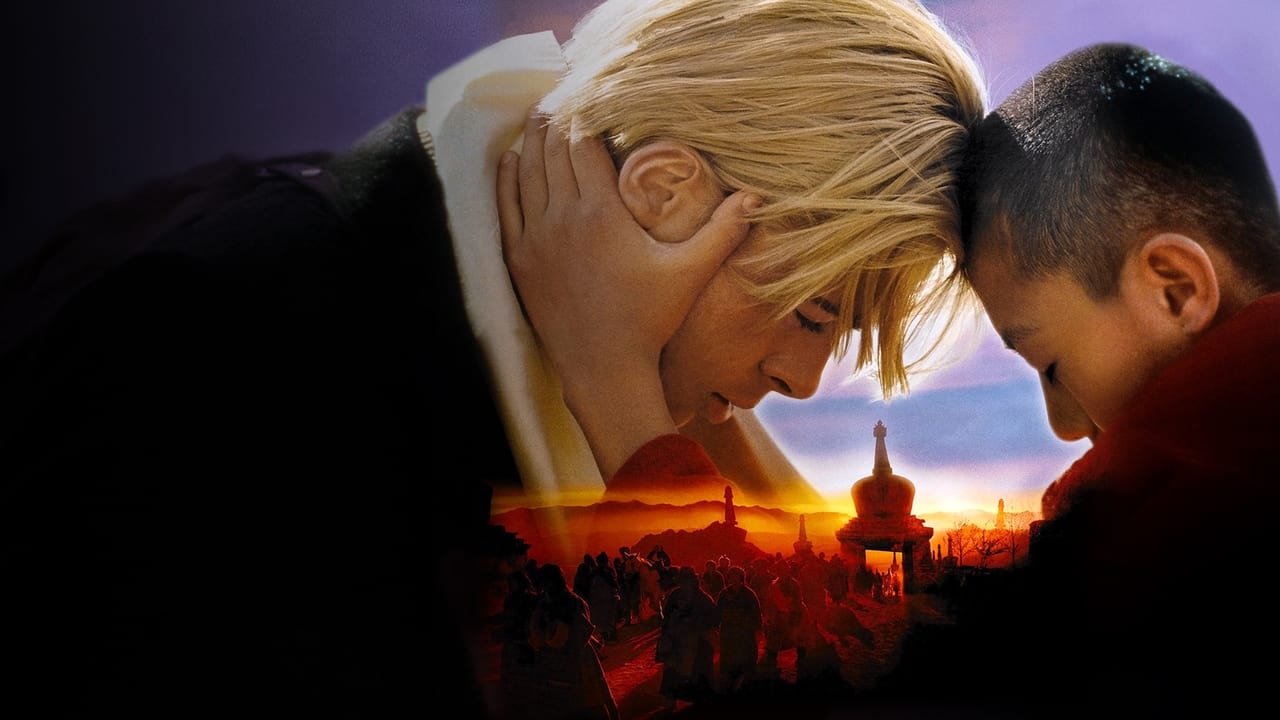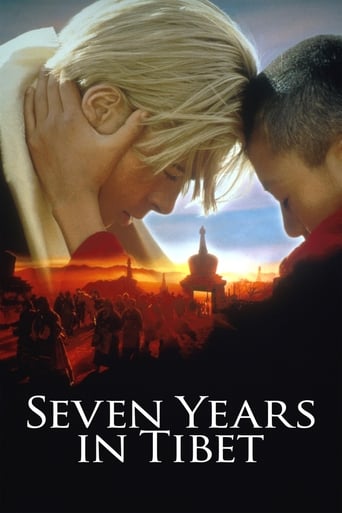

not only for the story itself. or for impressive location. but for the values who defines a meeting and a friendship. that defines this beautiful film who, in each scene, preserves the mark of its great director. Brad Pitt does a more than good job and the rhythm of story is perfect to discover a metamorphose of a man looking himself. its great virtue - realistic - touching portrait of Tibet. not a manifesto, not a pledge. but a convincing puzzle about the identity, history, believes and manner to define reality of a land and its people. story to reflect, it is a seductive trip in a mysterious region.and the dose of poetry, characteristic of the films by Annaud, represents the perfect spice for become a memorable experience.
... View MoreI have never read Heinrich Harrer's book so I have nothing to compare the film to and no way to know to what degree the film has been fictionalized. So I have to rate this film as "a dramatized or fictionalized biographical film".I saw this movie when it first came out in 1997. This is actually the last movie I have ever seen in a movie theater. (Yes it's been that long since I have been to the theater).This is one of those movies I liked better than I thought I would - it was better than the previews lead me to believe. I thought the movie was actually good. It was heartwarming, a bit adventurous, and quite an interesting story.My rating is based on "just a Hollywood film" and not on if it is a perfectly accurate account or true to the book.8/10
... View MoreThis film succeeded in doing something remarkable, namely, to portray all the main characters in poor light. Far from being faithful to the book (on which it is based) it lowers the stature of Heinrich Harrer, Peter Aufschnaiter and HH the Dalai Lama. Some new dimensions have been introduced being Harrer's longing for his son, a Love triangle, and competitive nature of friendship between Harrer and Aufschnaiter. None of these things were present in the book. Another disappointing part of the movie is that very little coverage has been given to the part describing the duo's escape and subsequent success in entering Tibet.Though, not everything is lost because this film succeeds in attracting international attention to the plight of the Tibetan people and the tragedy that befell Tibet. For this I give it 7 stars.
... View MoreBeautifully filmed and well scored, Seven Years in Tibet narrates the story of Austrian mountaineer Heinrich Harrer's journey (both physical and spiritual), his experiences in Lhasa, and his friendship with the child Dalai Lama. Heinrich Harrer's transformation from an emotionally immature and egotistic narcissist to an enlightened and more sensitive man parallels the story of Buddha's path to enlightenment.. Buddhism's underlying doctrine is that of compassion and it offers it's adherents a way of living that will remedy the suffering of the human condition. Harrer's discontent is his suffering. Prior to his journey to Tibet, Harrer's marriage is falling apart and he openly resents Aufschnaiter, the leader of the expedition to the Himalayas. Through his friendship with the Dalai Lama and the detachment from his "European way of life", Harrer learns to leave behind his selfish tendencies. He grows to regret abandoning his pregnant wife in favor of his own ambitions and manages to overcome his jealousy of Aufschnaiter for marrying Pema Lhaki. The wisdom that he gains from the Dalai Lama and Buddhist teachings even drives him to leave his beloved Tibet to return to Austria in order to make amends with his wife and son. As he deals with the challenges of scaling Nanga Parbet (the ninth highest mountain range in the world and the death of dozens of mountaineers before him), as well as the political turmoil of World War 2 Europe, he so too deals with his own demons and, despite not formally converting to Buddhism, adapts the clarity of a Buddhist way of life.
... View More